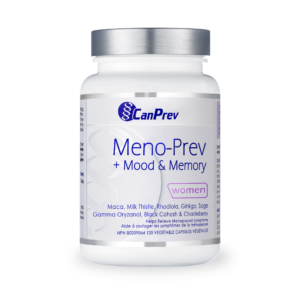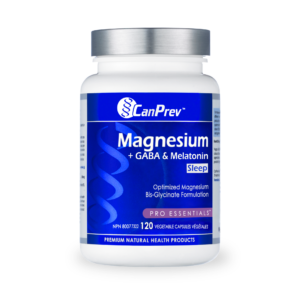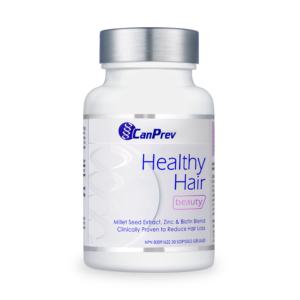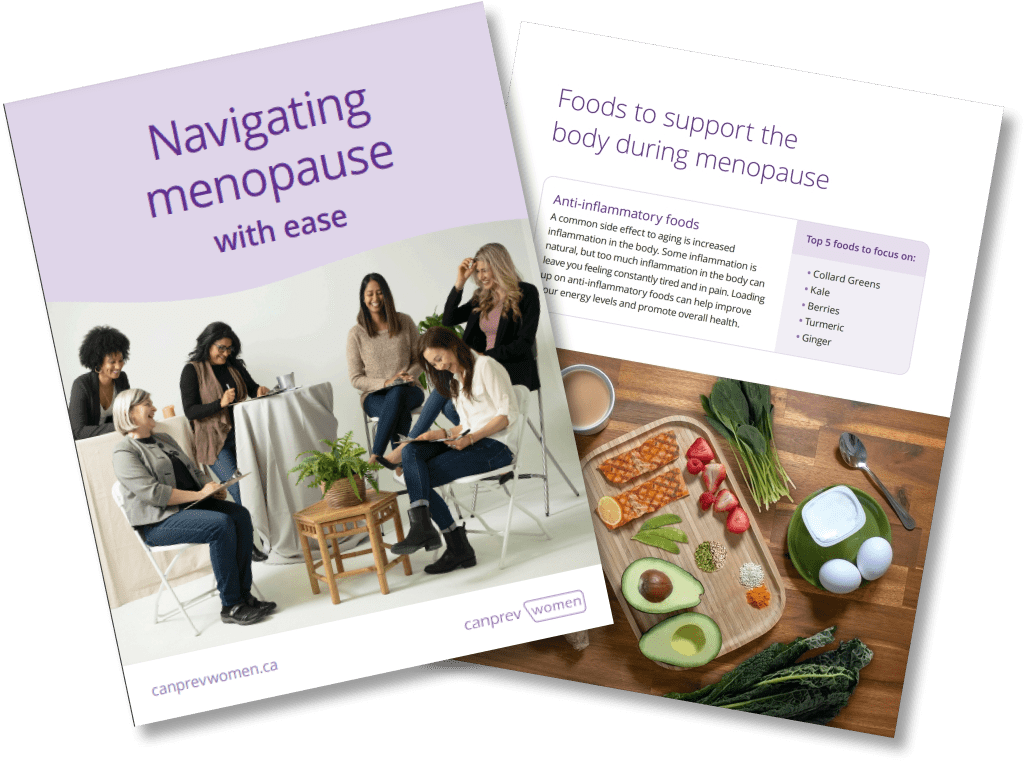Ladies, do you feel like there’s a lot of mystery around menopause, like there are certain things your mother just didn’t want to tell you? Or perhaps it was simply that she didn’t understand it herself.
You’re probably well aware that as we age (gracefully, of course), and move past the child-bearing years, that the ovaries are still producing the key sex hormones Estrogen & Progesterone, but those levels typically decline progressively the closer a woman moves toward menopause.
During this ‘perimenopausal’ transition time, which lasts anywhere from 4 to 10 years, menstrual cycles become less regular and a woman can experience a wide range of symptoms.
Then, when you haven’t had a period in 12 months, the ovaries won’t release any more eggs, and you’ve officially reached menopause, marking the end of fertility and your reproductive years.
But, let’s break that down a little further, and go beyond the hot flashes your mother told you all about!
What is menopause – and how do I know I’m in it?!
To kick us off, it’s actually three stages that need to be articulated: perimenopause, menopause, and postmenopause – and not just a single transition. I know you’re probably thinking… like you needed more than one!
But, what are usually the first signs of menopause?
The signs & symptoms of menopause
These are varied, unique to each woman, and begin to show up in the perimenopausal stage, generally sometime after the age of 40.
This is by no means a comprehensive list of all the possible menopausal symptoms you may experience, but these can include:
- Menstrual cycle changes: frequency, flow (heaviness), duration of flow
- Worsening of PMS
- Increased facial hair growth, and possibly on the neck, chest and upper back
- Other skin, hair & nail changes: thinning & dryness, as well as hair loss (sometimes a considerable amount)
- Fatigue or excessive tiredness, even with adequate sleep
- Difficulty sleeping & insomnia
- Emotional changes: Irritability, mood changes, aggressiveness, anger, anxiety, mild depression, lack of motivation, poor stress response
- Cognitive changes: difficulty concentrating & focusing
- Nights sweats &/or hot flashes
- Bladder control & urinary tract issues: UTI’s, urinary urgency &/or leakage
- Sexual function changes: loss of libido (low sex drive), vaginal dryness &/or pain during sexual intercourse
- Breast changes: sagging & loss of volume, tenderness, lumpiness (fibrocystic lumps)
- Headaches
- Muscle & joint aches
- Racing heart &/or palpitations
- Reduced bone mass and density
- Reduced muscle mass & loss of muscle tone
- Weight gain, especially around the middle (also known as “meno belly”)
Not all women get all of these symptoms, but most of them are typically a result of estrogen beginning to decline. This hormonal decline accelerates further in the one to two just prior to menopause.
However, some women continue to experience menopausal symptoms for a decade (or longer) after the transition, and this is the result of the body’s new constant of lower hormone levels, but specifically much lower estrogen.
How do I know I am in menopause, how long does it last, and what is the average age it happens?
Menopause is, of course, a normal part of aging that every woman goes through, lasting an average of seven years, and typically occurring in her early 50’s (average age being 51 years) that a woman stops having her period and is considered menopausal.
The age your mother or grandmother went through menopause is generally a good predictor of the time that you will.
Again, it’s the point at which you haven’t experienced a menstrual cycle for 12 months. However, women who have had their ovaries removed (oophorectomy) or a full hysterectomy for medical reasons, will experience an abrupt “surgical menopause” at the age of removal.
What is the last stage of menopause?
This is known as postmenopause and simply refers to the time immediately after menopause, which can bring about its own unique health challenges, like:
- Decreased bone density, with increased risk of osteoporosis
- Increased risk of heart health issues and cardiovascular disease
- Depression and other mental health conditions
- Eye health issues, such as dry eyes & cataracts
- Dental health issues, such as dry mouth & periodontal disease
- Continued changes in vaginal & sexual health, such as vaginal dryness, thinning of the skin, and vulvovaginal atrophy.
- Continued vasomotor symptoms: hot flashes, night sweats & flushing
There’s a reason these are the most talked about symptoms of the three stages of menopause – about 75% of all women experience them. Mom was right about that!
Nutrition, supplements & lifestyle factors that can ease the transition into menopause and beyond
Did you know that your daily nutrition and other lifestyle factors can positively affect and influence menopausal symptoms?
In other words, making a few changes to your daily health routine can support your body and mind during this time in your life, that every woman goes through – possibly resulting in less of the above possible symptoms or lessening their severity. (Yes, please!)
Healthy eating and lifestyle tips for menopausal & postmenopausal women
You should try to incorporate whole foods into your diet whenever possible, while avoiding excess salt and sugars, as well as refined fats, often all found in processed and packaged foods.
It may also be a good idea to avoid spicy foods, hot drinks, caffeine and alcohol, as these can all trigger hot flashes for some women.
Healthy, hormone-friendly foods you should include in your daily diet
- Healthy fats like fatty fish, walnuts, chia seeds and hemp seeds (get your Omega-3’s in!)
- High fibre plant foods like flax seeds and legumes (chickpeas, lentils and peas). You can also amp up your fibre intake with quality supplements like CanPrev’s FibreFeel.
- Brightly coloured whole foods like berries and broccoli (and other cruciferous veggies)
- High quality sources of protein like eggs, fish and collagen supplements – plant or animal sourced.
- Inflammation fighting foods such as turmeric (active ingredient: curcumin)
The importance of Calcium and Vitamin D3 & K2 in postmenopausal women
You also need extra calcium, vitamins D + K after menopause due to the decline in estrogen which causes your body to retain less calcium from dietary sources. Then, because vitamins D + K are both needed in the uptake of calcium, these become critically important during this time as well.
So, be sure to include plenty of bone-boosting foods such as: almonds, leafy greens (including cruciferous veggies), tofu, and sardines – but you’ve gotta eat the calcium-rich bones though!
It’s also a great idea to cover your nutritional bases by supplementing with all of the key bone health nutrients during this time: calcium, vitamin D3 & vitamin K2.
Herbal Therapy: discover relief for hot flashes and other menopausal symptoms
Medicinal herbs are widely used to support hormonal health during menopause and beyond. Herbal allies for women over fifty include black cohosh, chasteberry, dong quai, maca, and sage.
Black cohosh binds to estrogen receptors and works by affecting the neurotransmitters dopamine and serotonin. Preparations of black cohosh root have been shown to reduce hot flashes and night sweats, along with improving mood.
Chasteberry (also known as chastetree or vitex) shifts hormone production toward more progesterone and less estrogen through its effect on the hypothalamus-pituitary axis. Several studies showed chasteberry to be effective in reducing breast pain and other PMS symptoms.
Dong quai is a staple of Traditional Chinese Medicine (TCM) and has been called the “female ginseng” for its energy and mood-boosting properties. Dong quai is recommended for irregular bleeding.
Maca, a Peruvian adaptogen, benefits the endocrine and reproductive systems. Preparations made from maca root boost the production of sex hormones and increase energy and sex drive.
In studies, maca supplementation was associated with a substantial reduction of menopausal discomfort in early postmenopausal women.
Sage is used to alleviate hot flashes, sweating, and other menopausal symptoms as a general tonic. A clinical trial showed the efficacy of sage over a two-month treatment period.
Other health & lifestyle tips for a healthy menopausal transition
It’s worth noting that the following lifestyle changes can also be very helpful in mitigating some of the uncomfortable symptoms of menopause:
- Avoiding smoking
- Limiting alcohol
- Keeping up with a regular exercise routine, including resistance training to combat muscle mass losses and support bone health
- Maintaining a healthy body weight
Additionally, hormone therapy may be an effective treatment in women under the age of 60 (or within 10 years from the onset of menopause) for the reduction or management of:
- Hot flashes, night sweats & flushing
- Vulvovaginal atrophy & dryness
- Osteoporosis
Other prescription medications may be used to treat more specific menopausal symptoms, like hair loss, depression and anxiety.
Be sure to check with your Naturopathic Doctor or healthcare practitioner if you’re noticing any of these signs, and before you start any new medications or course of treatment for menopausal symptoms.
Hopefully we were able to break down and demystify MENOPAUSE a bit for you ladies! Because as you now know, it’s not just about the hot flashes, and there are a number of ways you can feel supported during this life transition — physically, mentally and emotionally.
CANPREV RECOMMENDS:
The medicinal herbs listed as dietary supplements can be found in such forms as a powdered whole herb, liquid extracts, and dried extracts in pill form, or in a convenient all-in-one therapeutic blend like Meno-Prev™ + Mood & Memory.
This all-natural formula was designed to provide relief from menopausal complaints, including subtle changes in mood and memory. It’s an herbal combination that offers considerable relief by alleviating menopausal symptoms, fostering a healthy mood balance, enhancing memory, and supporting sexual health.
Magnesium Sleep (GABA + Melatonin) – augmenting our Extra Gentle magnesium form with melatonin and GABA, this formulation is designed to help people relax, reset their circadian biological clocks, get better sleep while reducing the time needed to fall asleep for people with delayed sleep phase disorder.
Healthy Hair is a clinically proven formula to improve the volume, health, and beauty of your hair. The science behind hair nutrition is exciting and growing, and we are excited to offer a clinically proven formula that offers promising results for those who experience hair loss or are looking to stimulate hair regrowth.
Curious to learn more about menopause? Head over here to understand how you can better navigate menopausal symptoms.
REFERENCES:
Society For Women’s Health Research – Hormones, From Puberty to Post Menopause
Healthline (November 2018) – Menopause Diet: How What You Eat Affects Your Symptoms
Healthline (January 2019) – Everything You Should Know About Menopause
Healthline (February 2019) – Effects of Menopause on the Body
Healthline (April 2017) – What Health Changes Should You Expect Postmenopause?
Cleveland Clinic (Reviewed December 2019) – Menopause, Perimenopause, and Postmenopause
The Journal of the North American Menopause Society (2014) – The North American Menopause Society Recommendations for Clinical Care of Midlife Women
ARTICLES OF INTEREST:
CanPrev Blog (January 2018) – The Scoop on Vitamin K2
CanPrev (March 2019) – Menopause and Vaginal Health: What You Don’t Want to Talk About, But Should





